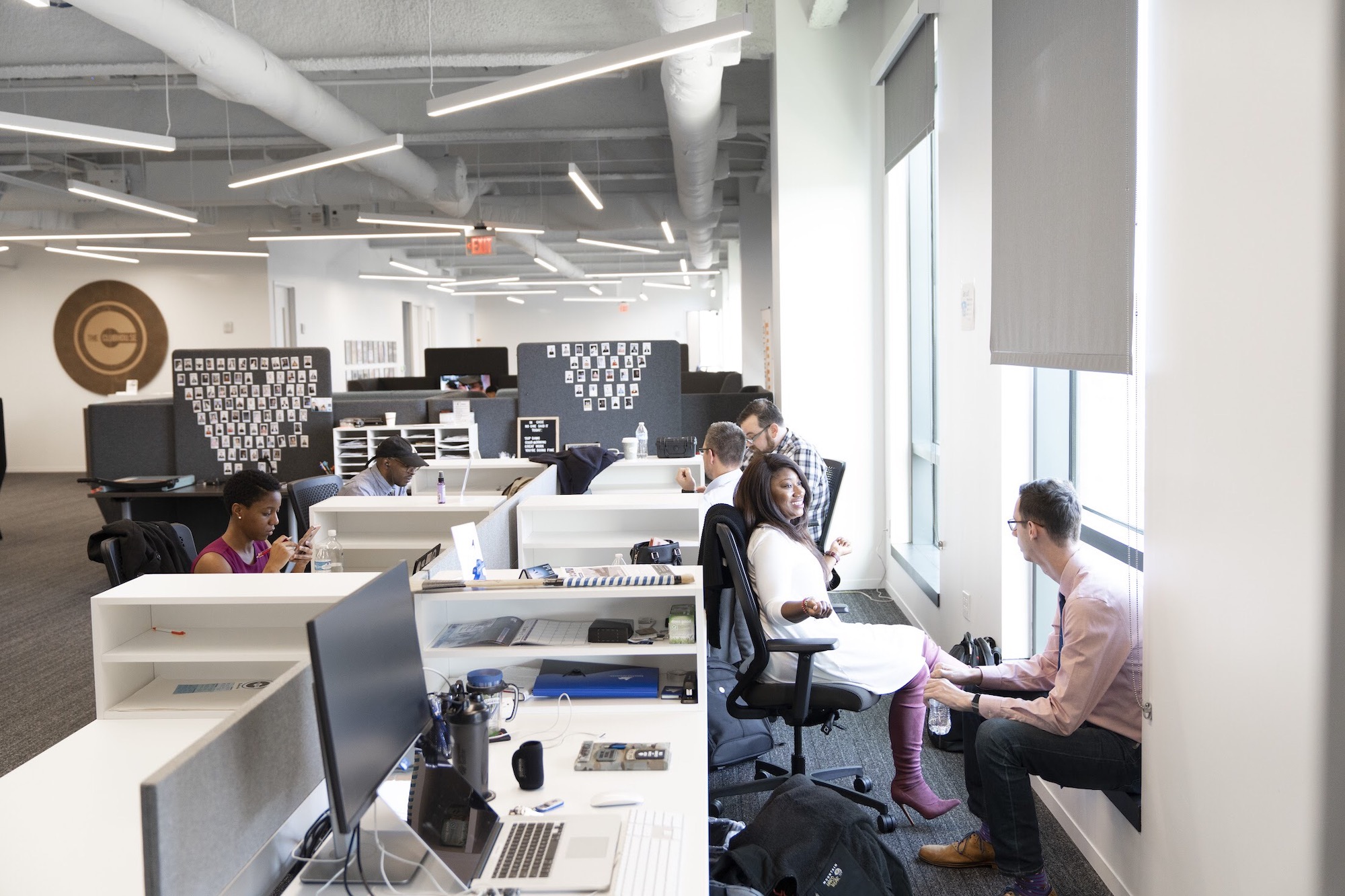Innovation Where We Live
by R. Steven Justice, P.E., Executive Director, Georgia Center of Innovation
We are living in a period of rapid technological change that impacts almost every facet of our daily lives.
Since the 1970s the Information Age has seen “the rapid shift from traditional industry that the Industrial Revolution brought through industrialization, to an economy based on information technology” according to Wikipedia - itself a product of the information age.
The sharing of information has exploded, driving advances in technology, not to mention the creation of entire industries and markets not envisioned just a decade ago. So now that we are almost 50 years into the Information Age, are we poised to enter a new era and what will it be?
Many articles accessible on the internet have guessed what this new age might look like. The predictions fall mostly into four main concepts:
- The Experience Age which focuses on interpersonal experiences enabled by technology.
- The Participation Age of getting people to not just view, but be part of the experience.
- The Collaboration Age of expanded sharing of ideas with building trust in people and systems.
- The Creative Age where there is a whole group of people whose economic function is to create new ideas, new technology, and new creative content.
Personally, I think that the new age will be a mix of the above into what can be described as the Innovation Age where experience, participation, collaboration, and creation are the four pillars which will shape this new era. We can see this already in places like Tech Square in Atlanta.
Building a Place for the Innovation Age to Take Root

At the turn of this century the corner of Spring and 5th streets in midtown Atlanta was not the place to be, but just a collection of old buildings and vacant lots across the freeway from the campus of Georgia Tech.
Then in a 21st-century answer to a take on an old joke, “why did the university cross the road”, Georgia Tech built its first office and laboratory spaces followed by the move of state’s start-up incubator ATDC and the business school to Tech Square. Next, the state’s economic development organizations moved in which meant that business leaders began to experience and participate in activities there. This led to those same businesses creating corporate innovation centers to collaborate with the resources at Tech Square to create new ideas, new technology, and new creative content. This mix of students, professors, researchers, entrepreneurs, economic developers, and business leaders made Tech Square an innovation community for this new age.
Spreading Innovation Across the Region
While Tech Square is a shining example of an innovation community, not every innovator can, nor should, live in midtown Atlanta – innovation should exist where people live. Innovation is tied inexorably to the challenges and desires of people as they face them in their daily lives. While some challenges are universal, others are very local in nature – problems and solutions in Atlanta are different than those in Augusta, Valdosta or Columbus.

Government agencies, universities, industry associations and local chambers of commerce are becoming more adept at collaborating to connect communities and businesses with the expertise, resources, and partners they need to develop creative solutions to unique problems. However, solving one problem almost always means it’s time to move onto to addressing the next one. Innovation is not a one-time thing, it should be part of a community’s DNA, and they should have their own flavor of a local innovation ecosystem.
Georgia has taken the lead in ensuring local communities can build a strong innovation community through the Georgia Center of Innovation (COI) program. The program consists of five individual centers, each focusing on a specific industry sector: Aerospace, Logistics, Energy Technology, Information Technology, and Manufacturing. Communities and businesses can engage these dedicated industry experts for assistance to develop new products, services, and business models while building the local resources to keep innovation thriving.
State-wide Resources to Solve Local Problems
A truly robust innovation ecosystem can flourish anywhere when a central resource such as the Georgia COIs are present to connect communities with the partners and assets they need to overcome a challenge that lies outside their area of expertise. Georgia, in particular, excels at bringing innovation to businesses wherever they may be through a network of resources available to them through chambers of commerce, innovation nodes, and industry trade associations which complement the statewide resources accessible through the Georgia COIs.
Three such resources from COI are:
- COI teamed with the ATDC to develop the GeorgiaInnovates tool to document the large and diverse array of resources that contribute to and are necessary for ongoing innovation in a modern economy. This online tool is a living database that allows the user to search for a wide range of resources available from industry, universities and colleges, government, non-government organizations, and the investment community.
- Georgia is home to many U.S. Department of Defense (DoD) facilities and companies that do business with the DoD which contributes to local economies. The Georgia Defense Exchange is an interactive business development platform designed to assist Georgia businesses in finding new opportunities in DoD contracting.
- COI is supporting the new Georgia Intellectual Property Alliance which is empowering Georgia IP to advance society by building a model IP ecosystem to generate global impact from creativity & innovation in the Southeast. GIPA facilitates the creation, protection & enablement of ideas that serve the common good. In particular, COI is working with our local universities to better connect Georgia businesses with the vast IP libraries created by ~$2 billion in annual university research in the state.
As a division of the Georgia Department of Economic Development, the COIs can tap into other teams and resources across the state from international trade representatives to university research labs, ensuring that communities and businesses can access the right resources to address their needs.
Local entrepreneurs and businesses that know how to tap into the knowledge, network, and assets within the state and local communities will be empowered to overcome the problems of today and develop a strong local innovation culture where Georgians can connect, compete, and grow in the new Innovation Age.
R. Steven Justice is the Executive Director of the Georgia Center of Innovation, where he oversees a wide range of programs that help Georgia companies commercialize new products, services, and business models through connections to industry experts, university research teams and government partners.

